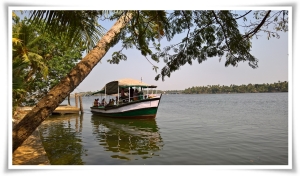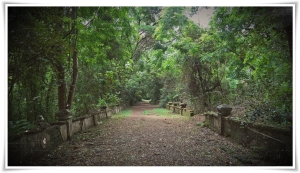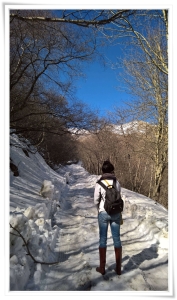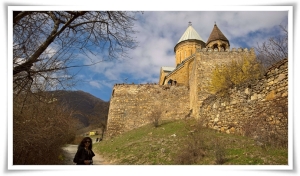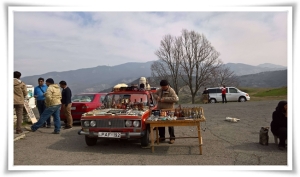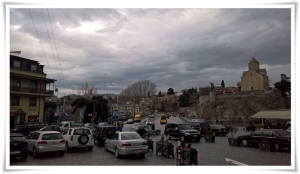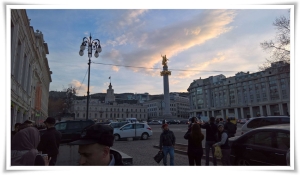Sleepless Nights thoughts
Life Line
The dream was real
It happened last night
A stranger
Took my hand
And rearranged
All lines
Will my life
Be the same again!
Face Shift
A face stared
As I stood over
A placid pool
A leaf fell
And the ripples
Carried it away
In smooth
Swirls
Another placid moment
A face so different
In the
Reflection
Am I
Me
Of a while ago
Celestial
The stars and the moon
Are silent, breathless
Though I think
The stars breathe
When I look up
They pour
Through my eyes
Into my lungs
I shiver
Faint Hope
Sleepless morning
Of a restless night
The birds are
Kicking up
A ruckus
Shattering
A sliver of hope
Of a moment’s
Slumber
Asthma
Every breath
Is pain
My eyes swell
As my mother
Rubs my chest
Now I live
In fear of its
Recurrence
Hypocrisy
I
Sometimes write
Knowing
Full well that
No one will
Ever read
Or
Understand it.
It’s
A
Good thing
Really?
Later
I know
I will write it
Later
I know
I will do it
Later
Until
I
No longer
Know
Sharjahscapes
Sharjahscapes
 Suburban morning incinerated by winter sun….
Suburban morning incinerated by winter sun….
 Lazy afternoon by the Corniche…..
Lazy afternoon by the Corniche…..
Photographs taken with Microsoft Lumia 950XL
Tokyo Story
Watched Tokyo Story today.
Got me weeping in some scenes.
How children drift away and become so immersed in their lives so as to become uncaring and selfish regarding parents; this is portrayed with great sensitivity, realism and compassion in the movie. The theme of the film was so pertinent to my present stage in life. It certainly prompted some intense soul searching which found me guilty of being apathetic to my parents needs and concerns. I am so caught up with my life that I scarcely give a thought to them except on Saturday evening when I call them every week. I hope I would not sink to the level of banality and apathy displayed by some of the characters. But then, maybe I already have.
This movie will certainly stay embedded in my soul forever, stinging with a sad throb at every recollection.
A thousand times recommended. Please, please watch it…
“Lost” in Thought
Yet another lament
Nothing new about what I’m going to discuss. It’s an oft repeated theme these days and I do not have a new take on it. So it is the same old wine in the same old bottle. You don’t need to read it further. It won’t enlighten you one bit. I’m writing this one only to get it off my chest.. Caveat Emptor.
Last week I read the transcript of a lecture by Bertrand Russell on “Free Thought and Official Propaganda”. The lecture was given a 100 years back and explored the “New Dangers” facing the freedom of the individual and freedom of thought at that time. The inadequacy of education to inculcate critical thinking and rationality, the culture of conformity induced by economic rewards to those who fall in line and punitive actions against those who don’t, how propaganda and media hype favours the rich and the influential so that only their side of the story is emphasised while other views are ignored or marginalized – in the lecture these were diagnosed as the perils that if allowed to go unchecked would result in a society which is selfish and easily manipulated. The significance of the lecture has not diminished over the span of a century; the dangers identified are still clear and present in varying degrees ; only that time and technology has added new ones to the cocktail.
We are probably freer to think whatever we like these days than was 100 years ago, but who thinks?
[Freedom of thought doesn’t mean freedom of expression of those thoughts. This is not so encouraged. Thoughts challenging the status quo are usually met with vehement opposition in spite of the new age mantra of innovation, lateral thinking, thinking out of the box etc. ]
Do we really think anymore? What would qualify as “Thought””? The interminable buzz that goes around in our brain could scarcely be called Thinking. It is a meaningless flux focused primarily on the troubles or pleasures we are experiencing in the short term. To think, one needs to take the time, focus on the subject, consider the pros and cons, weigh the evidence, question the assumptions, review the inferences, imagine implications, check for consistency and lot more – thinking through takes a lot of effort; it is hard work. I do not think I have ever thought the way I have described. There are several impediments to serious thought (or even idle contemplation) that I can think (sic) of based on my personal experience in our times and our lives.
If I consider my typical day; I am at work for close to twelve hours, another hour is spent getting to work, seven hours of sleep, one hour of exercise, an hour spent in the toilet and shower, half hour for food and half an hour before the TV, half hour spent with family – what is left? Just half an hour in the evening when I’m already drowsy and exhausted and eager to get to sleep. The only thoughts that go on in the head during this period is an incessant repetition of the troubles at work. Chasing the work deadlines (a term taken from prison camps to describe a physical boundary which if the captives try to cross, the guards are allowed to shoot them dead) have become hazardous to physical and mental health. The thoughts related to work are inevitably stressful and frustrating. It is difficult to overcome the fatigue and despondency they periodically induce. Work thoughts sabotage most of my waking hours. To me work has become such a dominant aspect of life, insidiously infiltrating and vitiating my time off it. The last thing I want to do on a working day is to think of anything that is unrelated to it.
Another factor which is a major drain on time and intellectual energy is the prevalence of internet and social networks engendered by the proliferation of mobile technology. Thankfully, I have not yet fallen into the social media trap where one is incapacitated by a constant flow of messages which demand and garner attention from serious business. Social media such as WhatsApp and Facebook do not demand thought, they only ask for soporific immersion – a flight from interesting titbits to another. There are also social media pandemics where some real world news (mostly tragic or horrifying) inspire a conflagration of messages and emotional flare ups. Even though social media do not demand thought, they clamour for attention. One can detect shades of obsession in the compulsion to respond to the messages as they come. After all, it is instant messaging which need to be responded to instantly. The finger tips and eyeballs and the amygdala are continuously engaged catering to the flood of text and images and sound bites that overwhelms the brain leaving little energy for thought.
Round the clock internet news, social media updates and online games provide constant entertainment and welcome respite from the quotidian real world. This escapist tendency is also manifest in our preference to participate in frivolous entertainment. Multi player online shooting games for example. The most successful movies these are those featuring super heroes, or those with fantastic animations. They take one away from the troubles and tribulations of everyday life into a world of make believe for a short while. But, given a choice we would have liked to permanently inhabit the exotic worlds portrayed in them. Reading books or watching movies with serious plots is passé. Active discourse over the ideas and knowledge gleaned from books and movies were sources of entertainment and personal growth when I was a student. I do not know if it is the case any longer.
An offshoot of the ubiquity of internet access and smart phones is the paucity of intelligent conversation. People are so engrossed in their mobiles that conversation proceeds in fits and starts and eventually peters out. Social media groups offer a continuous dialogue with multiple participants in real time. Conversation with flesh and blood people is much less interesting. Serious talk is effortful and needs thought and engagement which is diametrically opposite to the passive, effortless twitter of social media.
My rant against smart phones and social media does not mean that I dismiss them as totally irrelevant and useless. I do use a smart phone and WhatsApp to communicate at times, but I have not come to a juncture where I consider them as major consumers of my time. But, for so many it is. One only need to observe the avid interest with which people ponder over their WhatsApp, totally oblivious to what goes around them, to come to the conclusion that social networking and mobile phones are addictive. A new word – Nomophobia – has been added to the lexicon to describe this addiction. I have also read that there are mobile phone de-addiction centres in India.
So, work, social media and smart phones are a substantial drain on our time which we could have spent thinking. But then, think of what? This is another dilemma that we face these days. For one thing, there is too much information passing through at a rapid pace that nothing sticks. We have become jaded of everything – tragedies, catastrophes, discoveries, developments, art, music – there is a surfeit of all things that we do not know what to focus on. The digital world that envelopes us require moment to moment engagement, but it does not demand conscious retention of the data that it flashes before our eyes. We are bombarded with information that leaves a crazy kaleidoscope of images and sounds and music each day. We drift in the digital soup moving from message to message, from hyperlink to hyperlink, unaware of the passage of time. Like the multi-coloured wheel which when spun turns white, the mind draws a blank under the assault of fragmented data. The mind, continuously overwritten is empty of vivid memories, a tabula rasa with nothing to remind of the passage of time. No wonder so many of us complain about how quickly time passes since all that it leaves within us is an undifferentiated blur.
Yet another gift of technology that depletes the capacity for thought is the search engine. 10 years back, faced with a problem one had to think about it, search for information in books, go to libraries, talk to knowledgeable people. Now, all you have to do is to Google for it. One doesn’t have to think, or make an effort. The answers are ready made, just a click away.
The reliance on Google is ubiquitous, I’m not immune to it. In a world that demands quick solutions, the old time consuming methods of search is impractical. One has no choice but to rely on Google. When the information and solutions are available at the tip of your fingers, then why think. Thinking is old fashioned and cumbersome. I am not advocating a retrogression to old forms of search, but when something comes easy, it also goes easy. We no longer value information, since it is there for free and a click away. We do not bother to remember, which certainly affects our capacity to think.
Thought also requires a congenial environment which help to focus on the problem at hand. It cannot thrive in a world characterized by noise and distraction. As I write this, a soap opera with meaningless dialogue and disturbing background music is running on the TV disrupting the train of thought. It is difficult to concentrate, to find the right words and expression. In the city, we live in confined spaces within which the interests and desires of every family member has to be accommodated. Given the constraints, seeking solitude is a fruitless endeavour in such circumstances. Again thought suffers.
[TV also does its bit to propagate superstition and ridiculous, formulaic fantasy. The less said about it, the better. I’m amazed at the number of intelligent people who watch idiotic TV serials. I find it difficult to explain.]
Bertrand Russell lived in a time when intellectuals were respected and influential. A hundred years hence, social attitudes have changed substantially. We now live in an utilitarian, business oriented society where wealth is supreme. The influencers of our time are businessmen, investors and to a lesser extent economists. Now we want to do “business at the speed of thought”. Speed and action are considered paramount; thought and introspection are no longer qualities perceived as worthwhile. Intellectualism has lost its glory. The word – nerd – denoting an intellectual, carries a negative connotation, calling to mind a boring, solitary, bespectacled and effeminate entity.
Education has likewise become a commercial enterprise, a money making venture. Its aims have become utilitarian, to churn out fodder for the commercial, industrial and service sectors. Under the present educational model, teaching has turned into a stressful, thankless, low paying job in private schools. The idealism, wisdom and respect once associated with this profession is now gone. Google has also contributed to the erosion of faith in teachers. Google is considered as the ultimate repository of information and knowledge vastly superior to the teacher with his/ her limited knowledge. Any teacher who cannot give something more than what Google can provide quickly loses face. Students also acquire a false sense of superiority in their pseudo-knowledge which is a deterrent to acquisition of true knowledge. Since the goal of education has shifted from inculcation of the capacity of critical thought to imparting commercially valuable skills useful to industry, it can be concluded that the danger posed by education to the freedom of thought has magnified since the time Mr. Russell made his speech.
Where we stand:
Going by what I have described – we don’t have time to think, we do not have energy to think, we are too busy with our gadgets to think, we do not have the ideal environment which fosters thought, society is apathetic to thoughtful people, thinking doesn’t pay and teachers do not inspire. This is possibly the nadir of human reasoning.
Where are we likely to go if we chart the same course:
The introduction of mechanical devices dramatically reduced physical effort at home and at work. The sedentary life style this engendered contributed to rise in obesity and diseases such as diabetes and heart attacks. We now have gadgets, “Apps” and search engines which are aimed at reducing mental effort. The mental lethargy such gizmos will introduce, coupled with a stressful life is predicted to cause psychological problems and proliferation of brain diseases such as dementia. The consequences to society of people ill equipped to think are manifold.
The dangers to freedom of thought touched upon by Bertrand Russell were mostly external. Now we voluntarily participate in decimation of our capacity of thought. We shall continue to outsource thought in the foreseeable future, to artificial intelligence, to bots, to augmented reality. It is possible that very soon an algorithm will make the claim – “I Think, Therefore I Am” as humans relinquish this capacity and are consigned to collective amnesia. I find it ironic that this deterioration of the role of thought is happening at a time when the most influential literature in the history of mankind is accessible to anyone who has an internet connection, that too for free…
Until we recognize the threat and take concrete steps to overcome the dangers – both internal and external – in our individual capacities, the fate that awaits us is likely to be terrible.
So what can be done? We need to THINK about it.
Bertrand Russell: Freedom of Thought and Official Propaganda
http://www.users.drew.edu/~jlenz/br-free-thought.html
Uphill
 The clouds hovered intimidatingly close and oozed out through my skin in copious perspiration. I did not feel the usual enthusiasm when we climbed the pass from Thamarassery to Lakkidi. The oppressive heat of the plains, the pollution and traffic at Calicut, the long journey and the hurried nature of the visit – even though we were coming back after a hiatus of 5 years – all of that put me in a bleak and restless mood.
The clouds hovered intimidatingly close and oozed out through my skin in copious perspiration. I did not feel the usual enthusiasm when we climbed the pass from Thamarassery to Lakkidi. The oppressive heat of the plains, the pollution and traffic at Calicut, the long journey and the hurried nature of the visit – even though we were coming back after a hiatus of 5 years – all of that put me in a bleak and restless mood.
The rain exploded on us just as we reached Lakkidi. Wipers swayed frantically to sweep off the cascade that flowed over the windshield. World was a blur of green and grey for half an hour; then the rain stopped just as suddenly as it had arrived. The sky had cleared by the time we reached Vythiri. Sun was blazing again in all glory turning the inside of the car into a furnace. There were small muddy rapids beside the road; the pot holes were full and sloshing; sun light glinted sharply off wet leaves.
This had been the pattern of rainfall for the past couple of years in Kerala. It never rained steadily anymore during monsoon. Instead, it rained intermittently – brief spells of rain followed by sunshine and an accompanying sweaty heat. Rain did not sink into the soil replenishing ground water. When summer came there were droughts, something unheard of in Kerala, except in and around Palakkad.
The catchment area of Banasura dam was devoid of water except for a few insipid pools. Cows grazed in the barren floor on small patches of grass which must have sprung up after the onset of monsoon. Normal showers were expected this year, yet monsoon was indolent even though it was mid June.
At Korom our hosts plied us with flavoured tea and biscuits. Sitting on the verandah and gazing over the panorama of peaks and valleys splashed in green I eventually got over my gloom. The evening breeze was fragrant with a pleasant chill. For the moment I was deeply content.
Someone mentioned a local store at Kalpetta which sold forest products. The shop “Thanima” turned out to be a treasure trove.There were different varieties of honey (squeezed out with bare hands from the honeycombs) – Cheru Then & Puttu Then (honey from holes in the ground); types of rice which I had never heard of – Mula Ari (bamboo rice) and Gandhakasala Ari; there was Naruneendi Sarbath; there were crunchy ginger flakes laced with sugar – a panoply of interesting stuff. The shopkeeper was quite knowledgeable and did not mind showing it off, even giving us tips on cooking some of the things we bought.
Our visit was brief and intense, just like the sporadic but pounding rain, but the flavours of Wayanad lingers as we dip into the honey and ginger crumbs each day…
A few frames
Five shades of grey
Kerala is hauntingly beautiful during the monsoon.
The eerie, surreal light that pervades the sky in anticipation of rain is a sight to marvel.
Here are a few vignettes that lets you drench in the atmospheric setting…
Tricked Again
Now You See Me 2 – the briefest review possible
Paid good money to watch it
Sat at the edge of the seat from start to end
And got out scratching my head
This flick is pure magic, pure nonsensical magic
In fact there is no magic at all, it is just show off
The story is as flimsy as it can be,
The old, completely threadbare vendetta theme is evoked again
To loosely tie up an unremitting series of action
There is some pseudo-philosophical mumbo-jumbo thrown in
As a decoy
To give the film a veneer of intelligence (totally diaphanous)
Anyway, it is a clever sleight of hand
From Hollywood
Which leaves you dumb founded..
But then, you have always been dumb
You just found out
Again…
Watch it to Forget it…
Eat, Pray, Love (Or is it the other way around?)
A country by three dawns
Landed in Georgia early morning in late February. Women officers with steely eyes at the immigration counters in military style dark blue vests. A legacy of Russian rule? Outside in the semi darkness gypsy children grabbed me by the arms, no letting go till you shell out some Dirhams. Found it difficult to keep eyes open on the long drive to Gudauri. . The city appears drab and dingy by street light. Stepped out onto crunchy snow at the hotel in Gudauri. Our room was wood panelled room with large windows opening into a wide valley and mountains beyond. A thick blanket of snow layabout like candle wax over everything hushing all life. A blade of golden light is faintly playing on a mountain top. The dawn is about to break upon this icy abode.
I stand in the bath room naked, early morning sun warming my torso. A solitary skier is waddling over snow leaving a soft trail in his wake. The toilet bowl had funny design unlike ever seen before. I marvel at it. It’s the exact opposite of what is normal. Was it a mistake or is there an intelligent design behind it. Yet to fathom. Back in the bedroom it’s cold. I pull the heavy curtains closed and snuggle under the blanket. My wife is fast asleep, only her forehead visible under the rough quilt.
Breakfast is continental. There are several Russians and some guests from Philippines at the table. I stuff myself up on of country cheese.
Our Holidayfactory booking does not cover anything except the stay at the hotel. Upon request our hostess manages to arrange transportation for us to Kazbegi. All along the road a thick layer of snow lay in various formations whitewashing every detail. It dominates every sense, and draws attention to itself at every turn. The glare of the sun is blinding. It is similar to what we had experienced during our visit to Antarctica. The sheer cliffs and steep valleys are mesmerizing. The road is narrow, two lane with several dark, wet and dingy tunnels before which we are forced to patiently wait for huge 18 tonner trucks to pass. The trucks are en route to Armenia from Russia via Georgia ever since Turkey has closed it’s borders following disputes with Russia.
Kazbegi was a large town with broad streets, nestling under a towering mountain. The village Gergeti in which the antique church to which we were planning to walk up to stood across the road from it. Our jeep coughed up the narrow alleyways of the village, where old men bunched together and smoked and portly women in native attire screwed their eyes and stared at us, and came to rest near the grilled walls of a cemetery.
We soon realized that our shoes were not appropriate for the climb. Snow had melted into muddy slush and in no time soaked through our shoes. Elsewhere it had hardened into slippery ice. After several falls, smashing through shrubbery to avoid ice , being impaled by a recalcitrant cow, and futile attempts to support ourselves with birch branches, we managed to reach a plateau, about three quarters of the climb to the church. We constantly reprimanded ourselves for our mistake and hardly enjoyed the beautiful scenery around us. The corridor or leafless birch trees where we paused before our next skid and fall was especially sublime, the beauty of which was lost on us completely. Beyond the plateau we would have to push through knee deep snow. Although we desired to go on, the exertion so far had already taken its toll and abandoned our quest. We walked moodily about a bit and decided to return. The walk down filled us with fear of slipping and there seemed no solution except to request a ride in one of the cars which had brought other tourists to the plateau before they climbed up. Fortunately we could hitch a ride in a van which had brought some Russian tourists. On the way down it lurched from side to side and growled in the deep grove of snow. The switchbacks were especially precarious and narrow. The van stopped an inch from the cliff and shifted into reverse gear before finding enough space to turn and veer off. The ride was fun, hanging on to dear life while listening to soulful Russian music.
From Kazbegi we went to the Russian border before returning to Gudauri. This visit was a waste of time since we had to drive a long way along a pot holed road beside a wide river just to have a glimpse of a border control building from the car . Probably I can brag about it someday…
For lunch we had Imerouli Khachapuri, a leavened bread stuffed with cottage cheese with a tangy flavour baked in the shape of a thick pan cake, and fried pork. The quantity was substantial, and we ended up like stuffed dolls with no appetite for anything whatsoever for the rest of the day. We also visited the local supermarket where we stood out like a light house, being the only dark skinned people in town. People were cordial and not overly inquisitive; so we did not feel uncomfortably out of place.
Language wasn’t much of a barrier since most young people spoke reasonably good English. The old only spoke Georgian and Russian, so they were usually taciturn in communication, though generally affable.
The return journey from Gudauri to Tiblisi took us through pristine countryside and occasional towns with run down factories which perfectly fit our mental image of Soviet era communes. Even the most decrepit looking towns had state of the art, concrete and glass police stations which to me looked life a left over of the totalitarian politics under USSR. There were several Russian made Lada cars on the road which our guide dutifully informed only looked ramshackle but had tremendous horsepower. We stopped to look at one of the several roadside stalls selling local honey and country wine. The wine turned out to be undrinkable, tasting more like arrack than wine.
At Ananuri we visited the old orthodox church briefly. A pious old lady in ominous black glided from candle stand to candle stand , lighting each. An intense fragrance of frankincense filled the room. In the pervading gloom, I could pick out the glittering Cyrillic script gilding the edges of murals on the pillars. Outside the church, the air was fresh and minty. Several women, young and old, sold kitschy souvenirs on colourful makeshift stands. We bought a wine glass made of cow horn after being assured that it is an authentic specimen of Georgian country craft.
Tourists were pouring in, mostly Indian, Filippino and Arabic; western tourists were conspicuous by their absence. Possibly, the communist background of the country put them off or there wasn’t enough prostitution to attract them. Georgia was not an expensive destination which accounted for the money conscious Indian traveller. Although the Lari (Georgian GEL officially) was more valuable than the Dirham, food, stay and travel was quite affordable, noticeably accentuating the perceived value for money.
The hotel room we checked into at Tiblisi was small, with just enough room to slide around the edge of the bed. It was located on George Bush street. An imposing print of the ex-president pensively stared at you as you emerged out of the under pass. This was a sign of the change in times and affiliations. One is astonished to notice several expensive cars, especially Japanese 4×4’s on the streets of Tiblisi in peaceful coexistence alongside the Lada and ancient Mercedes Benz. Someone remarked that Georgia was one of the most popular destinations of used cars, which may explain the presence of these cars, or it may have been pure envy on the part of that person at the relative prosperity of Georgians.
Late afternoon, we gathered directions from the hotel and went out shopping at the crowded local market at Vakhsali, where we were certainly and unusual sight going by the curious stares of passers by and shop keepers. The market was full of cheap Chinese stuff from shoes to jeans to buckets. We couldn’t find what we were looking for at the market. We were at the wrong place and wanted to get out. I didn’t remember the name of the place where we wanted to go. The taxi drivers did not speak English and gesticulations proved to be inadequate. Finally I managed to recollect the name of one place and off we went like a hornet. Traffic enforcement was lax and rules were regularly broken with impunity.
Chardini was exactly where we needed to be. It was quintessentially touristy and had several shops selling the kind of souvenirs visitors desired. There were shops selling Georgian Minamkari (enamel) jewellery, others had orthodox church memorabilia, there were carpet shops, an entire section was devoted to elegant restaurants specializing in local cuisine, there were colourful dry fruit shops displaying Churchlela (walnuts embedded in grape jelly) and Gozniaki (sesame chikki), there were tour operators, art shops.. We went on an orgy of window shopping…
The cab we took from Chardini to our hotel was driven by a half crazed man in extreme hurry, who swore at other vehicles, and cut in front of others, honked madly and impatiently drummed his fingers on the steering wheel waiting for the traffic signal to open. There was something bothering him terribly, which wad evident in the lunatic glint in his eyes when I asked him to slow down and drive carefully. I don’t think he understood me correctly. Our chances of survival seemed meagre. In the end we reached the smug figure of George Bush with his pensive stare, and boy I was never so happy as now too see that silly smirk on his face declaring unequivocally that we have reached out destination without been crushed to pulp in a gory accident. In the end, the driver charged us more than usual and sped off in a burst of fumes. We prayed for his safe arrival wherever he was heading…
After nightfall we went to a cultural evening featuring traditional dance, music and food. It was marvellous, all of it – the drumming was high tempo and dashing; the dance a vibrant combination of graceful swings, coquettish gestures and virile foot work; the food – especially the dish with walnut paste stuffed in thin, lightly sautéed aubergine was divine. Truly satiating…
Jvaris monastery is perched high up on a hill top overlooking the old city Mtshteka. It stands tranquil, quiet, solitary and imposing against a vast green meadow from which one could hear an occasional nostalgic clang of cow bells. The priest in the monastery wore an indifferent expression bordering on complete resignation. This is characteristic of being monkish I guess. But the lifelessness of his eyes and the bloodlessness of his cheeks was despairing even to onlookers. He gave out the impression of being tenuously attached to life on earth and was soon to be sitting beside God Almighty in heaven thanks to a dull life within the monastic confines. I know that I am being overly judgmental.
Only the church part of the monastery was open to visitors. It was similar to other orthodox churches we had visited before, dark interior, lighted by flickering candles, golden reliefs on walls, unembellished cross in the middle with a Cyrillic inscription, an aura of brooding mystery.
Outside there was the usual entourage of souvenir sellers of the placid sort, they only displayed their wares and did not aggressively market them, thankfully. Perhaps the ancient weariness of the monastery had seeped into their souls too. There were elderly ladies, dignified in their pursuit of alms sitting on small stools beside the shops. The monastery was not a hard sell unlike the tourist propaganda manifest in Western Europe. None of the tourist attractions charged an entry fee. All of them were immaculately clean. Georgians were proud of their history and certainly cherished it.
On the way back from the monastery we found an isolated tree in the forest festooned with colourful ribbons and threads. The belief that tying ribbons to this tree warded off evil was akin to similar belief systems in India, possibly rooted in a shared pantheism. The Georgian script too was more similar in its roundedness to Sri Lankan or Telugu and quite unlike Cyrillic which I had believed to be endemic to Caucasia.
We paid a brief visit to the massive Swetitskhoveli cathedral in the old city of Mtskheta. This was a UNESCO heritage site and looked it in its surgical cleanliness and conservative rigour. We were accosted by a bunch of lazy dogs who eagerly lapped up the peanuts (that was all we had) we had to offer. For lunch we bought bread stuffed with meat and rice from a roadside counter. It turned out to be delicious, reconfirming my faith in the reliability of street food wherever you are.
In the afternoon we went along with a conducted city tour managed by our guide Nino (*). We started off at the old city and later took the cable car across Kura to Narikala fort. Beside the walk way were the regular tourist fare – one could get pictures taken in Georgian traditional costumes, along side peacocks, or with falcon in hand…. There were paintings for sale and if you stared at them long enough, the painter materialized at your elbow. We were tempted to buy a beautiful cityscape in blue, but was dissuaded by the price. The painter was not particularly appreciative of admiration than the money. Of course he has to make a living selling the paintings, he can’t survive on appreciation alone.
Near the Statue of the Mother (Kartlis Deda) there was a Punjabi boy manning a tea stall. From him we came to know that there is thriving Indian community in the country. This was not surprising – we are flotsam, found in all continents and in the unlikeliest of places (We had met Indians at gas stations in the island of Kea where we had least expected to find our compatriots).
The city tour was by foot and covered various sights, right from the bone white towering statue of Mother (looked the blood thirsty kind though the sword could be a symbol of benevolent protection, anyway quite unlike the meek figure of mother Mary which was what I expected in a country of dominant Christian faith. Then again, this was the country that spawned Joseph Stalin, so the sword wasn’t out of place) to antique buildings, fort walls, monasteries, churches, a synagogue, a mosque, commercial streets, places of historic and political significance, parks, opera house etc. We walked over the peace bridge (the guide couldn’t explain what peace it represented), we walked on the road single file against the tumultuous burst of people exiting from metro stations, we jay walked across streets enjoying the unfolding tableau of a resplendent city gearing up for a raucous evening. We visited Dionysus wine shop for a spate of wine tasting; along the way we sneaked out of the group to buy Georgian doughnuts; smallish but quite tasty. The walk culminated in formal dinner at a cellar café. This is where I had my first taste of Khinkali, a juicy dumpling one is supposed to eat in a really messy way. (Vegetarian version of Khinkali is available, though meat and meat stock is the standard filling).
None of the restaurants we went to served water. Water had to be specifically asked for, always. Did it mean that Georgians are averse to water or they never drank water alongside their meals? Don’t have an answer. Also, none of the meals had a dessert, there were no desserts on the menu. I guess dentists do pretty badly in Georgia.
The tastes, the sights and the people of the city were truly enthralling. No other city I had ever been had a natural water fall at its centre. Women were gorgeous, with fair complexion and spotless, smooth skin. Both men and women turned out immaculately dressed in public. Only the gypsies presented a shabby side, with the children literally clinging to your heels till you give them money. But they were never shooed away, even when they harassed tourists, but was regarded indulgently by the locals. Men and women openly expressed affection, generously hugging and kissing softly on each other’s cheeks when they met.
The people seemed to be fun loving, energetic and hard working. They were amicable. Women looked more enterprising and ran most business establishments we have been to, by that I mean most shops except the liquor shops !!!!. I guess most people loved their drinks and a fag (though smoking was not much in evidence in the city) and good food. Vodka, vodka for the car, this was a constant refrain of our driver – who looked old and shrivelled, but was quite sturdy; he had a CD of old Hindi songs in the car which he played briefly before switching back to English music (English pop was ubiquitous, everyone listed to it non stop in the cars).
Spring was beginning after a long depressing winter and spirits were up. It was a good time to visit the country still poised between two worlds – the old communist dominated behind the iron curtain world and the new, brutal, cut throat, consumerist world of capitalist origin. In Tiblisi the change was evident and this wave was definitely set to sweep the country in years to come. We have met Georgia in its dawn, which hopefully will not turn out to be twilight for the country. We hope to return to its spell some day.
Notes:
- Most young women we met went by the name of Nino. Later we found that the three most common names for women were Nino, Ana and Maria. For men, the most common names were David, Georgi and Vakhtang – names of the erstwhile kings.
[Like South Korea, where one could get by calling a guy Kim, if that didn’t work, then Kang etc. here too we had a pretty much standard set of names we could try out]
- The currency is Georgian GEL (Lari and Tetri – which is small change)
- Holiday Factory offers a standard tourist package which does not cover much. I would rather build a custom package which covers what interest us most rather than the package. This may be slightly more expensive, but would avoid shelling out extra dollars buying add-ons once we are in Georgia.
- There are ATM’s in Tiblisi and in Gudauri. So getting cash is not a problem.
- Most shops in Tiblisi accept international credit cards. The supermarket in Gudauri also accepted credit card.
- The country is relatively safe. No one warned us to keep off from any place. There were no signs warning of pickpockets etc. anywhere.
- Indians resident in UAE do not require visa. You can get an entry permit on arrival.





